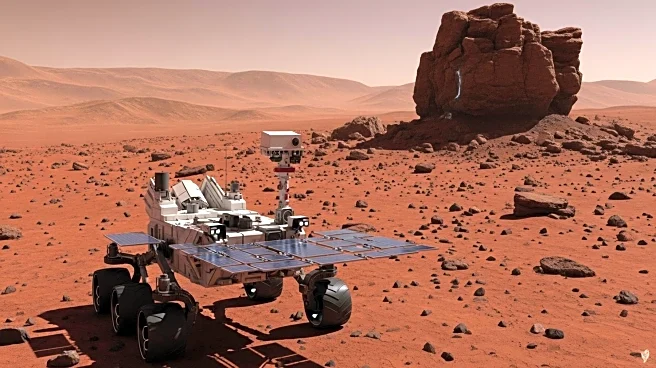What's Happening?
NASA's rover has reportedly found possible evidence of life on Mars, marking a significant milestone in space exploration. Scientists have identified what they believe to be the first piece of evidence suggesting life on the Red Planet. This discovery could reshape our understanding of Mars and its history, potentially indicating that life once existed or still exists in some form. The rover's mission has been focused on exploring the Martian surface and analyzing soil samples to uncover signs of past or present life.
Why It's Important?
The discovery of potential evidence of life on Mars is crucial for several reasons. It could provide insights into the possibility of life beyond Earth, influencing future space missions and research. This finding may also impact the scientific community's approach to studying extraterrestrial environments, encouraging more investment in space exploration technologies. Additionally, it could have implications for understanding the conditions necessary for life, potentially guiding future searches for habitable planets.
What's Next?
Following this discovery, scientists are expected to conduct further analyses to confirm the presence of life on Mars. This may involve additional missions to collect more samples and data. The scientific community will likely engage in discussions and debates regarding the implications of this finding, potentially leading to new theories about life in the universe. NASA and other space agencies may prioritize Mars exploration in their future agendas.








